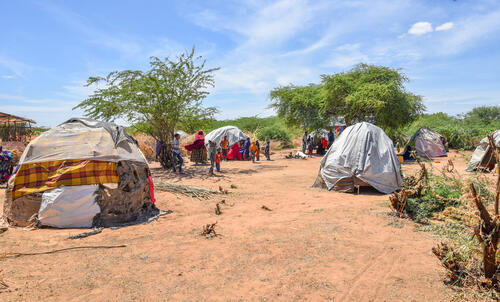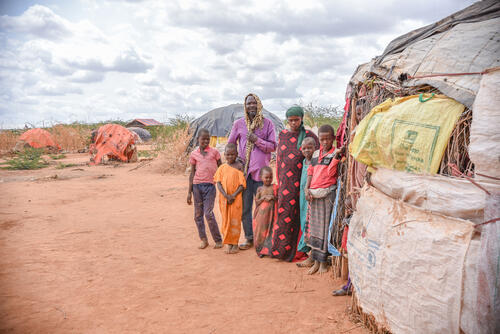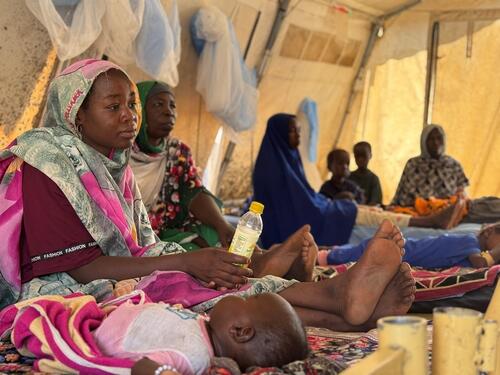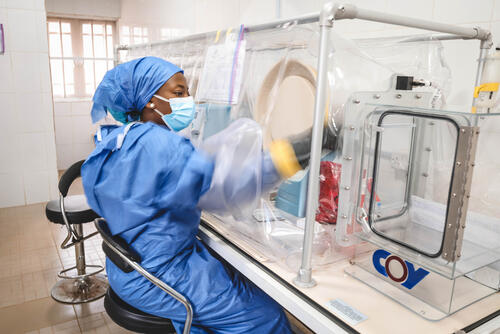- Hundreds of people continue to arrive at Dadaab camp, Kenya, where living conditions for vulnerable people are worsening.
- MSF urges the UN Refugee Agency and Kenyan authorities to launch vaccination campaigns to prevent large-scale outbreaks and save lives.
With hundreds of people from Somalia arriving each week in Kenya’s Dadaab Refugee Complex, living conditions in camps hosting over 233,000 refugees and thousands of new arrivals since January are worsening. Given the conditions in these overcrowded camps, there is a high risk of disease outbreaks, warns Médecins Sans Frontières (MSF). MSF urges the UN Refugee Agency and Kenyan authorities to ramp up humanitarian support and urgently launch vaccination campaigns.
People from Somalia are escaping a crippling drought, violence and continuing conflict in the country. Many of those arriving are coming from southern Somalia, where measles and cholera outbreaks have occurred recently.
With low vaccination coverage in Somalia... infectious diseases can spread rapidly, putting people living in and around the camps at heightened risk of getting ill.Adrian Guadarrama, MSF deputy programme manager for Kenya
“With low vaccination coverage in Somalia, and no system in place to receive and screen the newly arrived people in Kenya, infectious diseases can spread rapidly, putting people living in and around the camps, particularly children, at heightened risk of getting ill,” says Adrian Guadarrama, MSF deputy programme manager for Kenya.
“Even a few isolated cases of measles and cholera can cause a full-blown outbreak in overcrowded camp settings, where clean drinking water is scarce and sanitation and hygiene are poor.”
Last week, our teams recorded three measles cases and two suspected cases of cholera in Dagahaley, one of the three refugee camps that make up the Dadaab Refugee Complex. Previous measles vaccinations in the Dadaab camps will provide some protection to children, but the situation can still be life-threatening for new arrivals who are unlikely to have been vaccinated.
Enhancing cholera prevention measures, including cholera vaccination, is even more critical as Kenya has reported ongoing outbreaks in six counties.
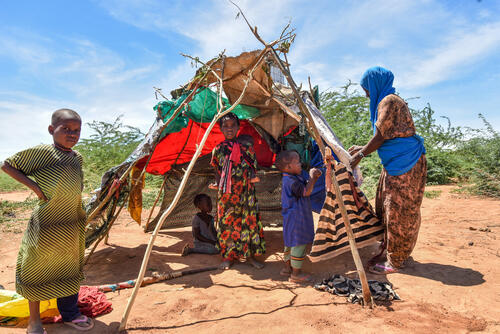
“A targeted measles and mass cholera vaccination campaign in Dadaab camps and the surrounding communities is now required to prevent large-scale outbreaks and save lives,” says Guadarrama. “We are ready to support with launching the much-needed vaccinations in Dagahaley camp, where we are the main healthcare provider.”
Our health promotion teams are actively seeking out new arrivals in Dagahaley to provide medical screening and facilitate referrals for those in urgent need of medical care. But the lack of a reception system to identify and welcome the new arrivals makes this task very difficult, and further delays their access to humanitarian assistance.
According to data collected by our outreach teams, the number of arrivals from Somalia to Dagahaley alone has doubled from August to September, reaching over 800 people. This number is estimated to keep increasing steadily in the coming weeks and months. Many of the new arrivals say they need shelter, food, safe drinking water and latrines, as open defecation is now common.
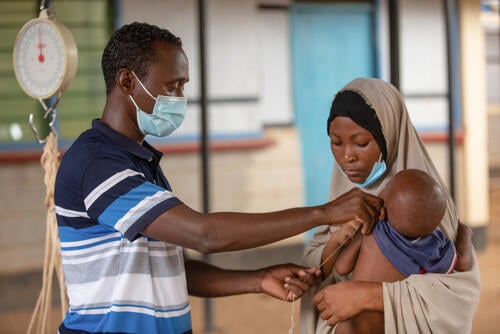
Refugees already living in Dagahaley have been generously hosting many of the newly arrived people, sharing their meagre resources with them. But relying solely on hospitality is not a sustainable solution. Moreover, those with weak social connections in the camps have little choice but to live on the fringes, have limited access to food and are vulnerable to harassment and assault.
“The humanitarian situation in the camps and surrounding communities hasn’t yet reached breaking point, so we still have a window of opportunity to step up preventive action and avoid an emergency unfolding on top of what is already a long-running crisis,” says Guadarrama.
“UNHCR, donors and the government of Kenya must all show a sense of urgency now, setting up a dignified reception and screening system for people crossing over to Kenya. Without screening new arrivals, vaccinations only will have little impact.”
Humanitarian assistance will also need to be scaled up to address the needs of new arrivals, and the long-time refugees and host communities, as they have also been suffering under the drought. At the same time, the need to find durable solutions for refugees should not be forgotten as preparedness and emergency response measures are put in place.
“Many of those arriving in the camps have undergone traumatic journeys, some may even have lost family members on the way, and others may have been victims of violence,” says Guadarrama. “So, it is vital we do not overlook the stress, suffering and psychological trauma many have experienced, and strive to integrate mental health services in the response.”
Dadaab currently hosts over 233,000 registered refugees, many of whom have been living in the camps for over three decades (UNHCR, July 2022).
MSF has been delivering healthcare in and around Dadaab for most of the camp’s 30-year existence. Our current programmes are focused in Dagahaley camp, where we provide comprehensive healthcare to refugees and host communities, including basic and specialist care through two health posts and a 92-bed hospital. Our medical services include sexual and reproductive healthcare including emergency obstetrical surgeries, medical and psychological assistance to survivors of sexual and gender-based violence, mental health, home-based insulin care and palliative care.



